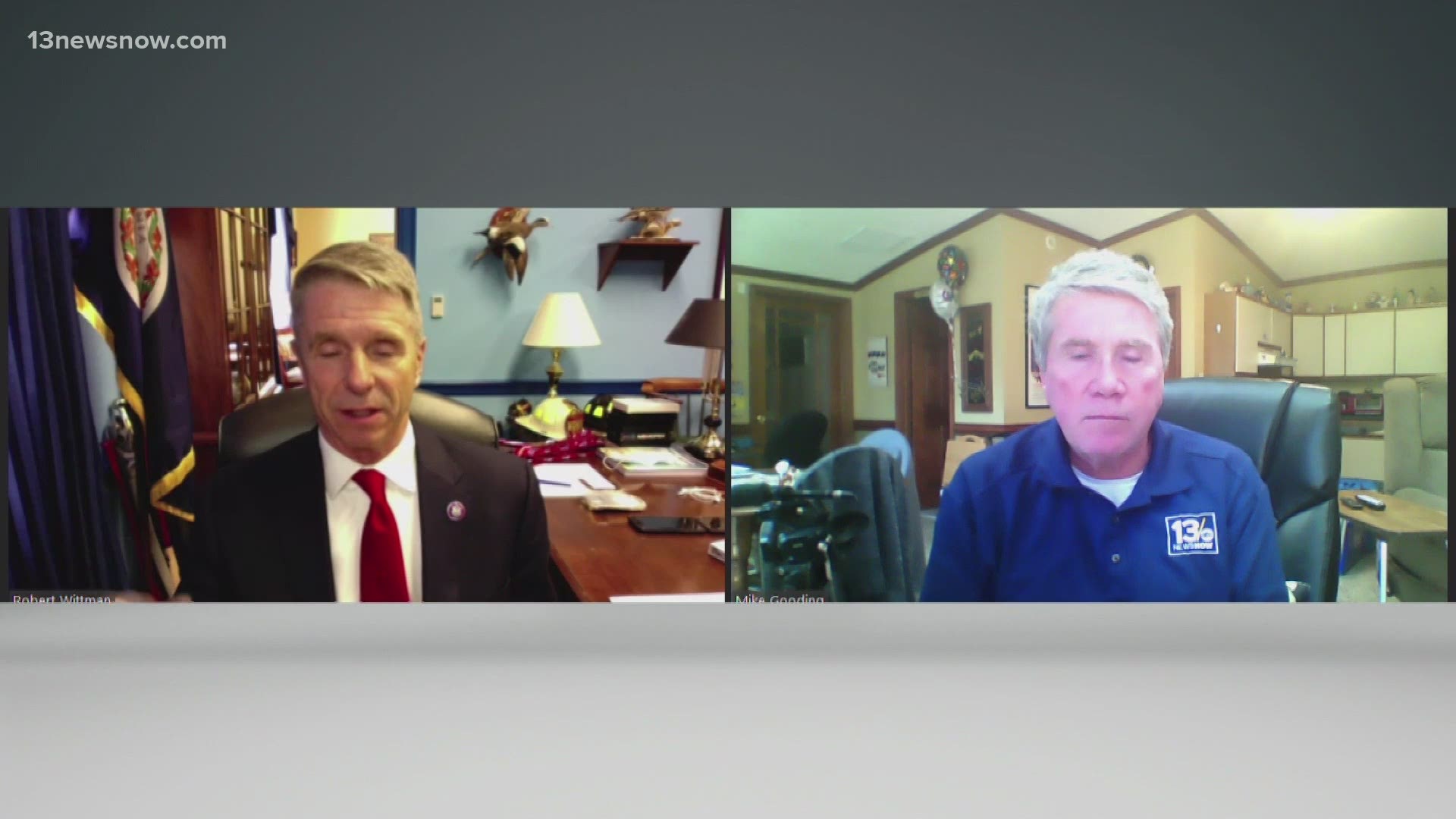WASHINGTON — There was plenty of drama, as the House of Representatives debated the $1.9 trillion American Rescue Plan.
The measure allocates money for vaccines, schools, small businesses, and anti-poverty programs such as an expanded child tax credit that would mean new monthly payments to many parents.
Democrats, such as Virginia Senator Tim Kaine, enthusiastically support the bill.
"I expect we're going to see it have a dramatic effect on Americans' health, on their economic health, but also on their feeling of well-being as we exit -- hopefully soon -- a very, very dark chapter in American life," he said.
But, Republicans were universally opposed, arguing that they were effectively shut out of the process and that the package is too broad. They claimed that only nine percent of the funds will go directly toward COVID-19 relief.
Virginia First District Republican Rob Wittman said he was a "proud" no vote.
"A lot of these dollars aren't going to anything that's remotely related to COVID-19," he said. "So I think we just have to point those things out. Because these decisions have long term ramifications."
However, a Tegna "Verify" examination of the bill, using the Committee for a Responsible Federal Budget as its source, estimates a little more than 15 percent of the package "is spent on long-standing policy priorities that are not directly related to the current crisis."
That would mean almost 85 percent of the bill's funding does go toward projects related to COVID, and the report concludes that the claim that 91 percent of the bill is not COVID-related is false.

